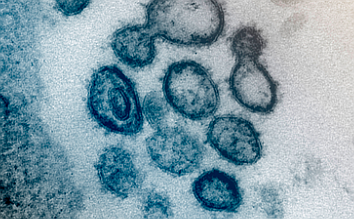Contact tracing efforts to mitigate the spread of covid-19 among college students are being handled by two contractors with the state as an agreement with the University of Arkansas for Medical Sciences approaches its end, officials said.
Federal coronavirus relief funds covered the $3.9 million paid as of last week to UAMS for college-related contact tracing done as part of an agreement that dates back to July, a state Department of Health spokeswoman said.
"The UAMS contact tracing team reached out to over 26,000 individuals who were affiliated with a higher education campus," Danyelle McNeill, a Health Department spokeswoman, said in an email.
UAMS last Friday ended its contact tracing for colleges, said Leslie Taylor, a spokeswoman for the academic health center and medical school.
This Friday will mark the end of UAMS contact tracing for Marshallese and Hispanic communities, Taylor said.
A memorandum of understanding signed in August between UAMS and the state Department of Health outlined the terms for both contact tracing efforts. Taylor in February said the agreement was valid through the state's fiscal year, set to end June 30.
"We did not make an official request to continue but told them we would be happy to continue in the future if needed," Taylor, with UAMS, said in an email Monday.
UAMS in July 2020 announced the joint effort with the Health Department to provide contact tracing services to colleges.
McNeill, with the Health Department, said contact tracing for the college population will be done by the Little Rock-based nonprofit Arkansas Foundation for Medical Care and Falls Church, Va.-based General Dynamics Information Technology.
She said additional college-related cases are to be "folded into the existing [contact] tracing workload" of the contractors.
The UAMS contact tracing effort, focused mostly on Marshallese and Hispanic communities, included more than a dozen bilingual contact tracers, UAMS officials said earlier this year. The "special populations" effort served the Northwest Arkansas region but also provided support to Randolph, Independence, Yell and Sevier counties, which are located in different parts of the state.
McNeill said the vendors providing contact tracing services for the state "have some staff who speak multiple languages and also have translation lines for use when a contact needs assistance via another language."
COLLEGE CONTACT TRACING
UAMS at the start of the new year briefly suspended contact tracing efforts. But then the state Department of Finance and Administration later in January cleared the continued use of federal Coronavirus Aid, Relief, and Economic Security (CARES) Act funds on the project through the fiscal year, McNeill said.
The most recent Health Department data published May 27 listed 14,567 cumulative cases of covid-19 among college students and staff since June 15 of last year.
Arkansas State University coordinated contact tracing with the state and UAMS but also has received "significant assistance" with contact tracing from the New York Institute of Technology College of Osteopathic Medicine, which has a site on the Jonesboro campus, university spokesman Bill Smith said in an email.
Even as colleges in the state were free to seek out partnerships to help with contact tracing, UAMS agreed to provide services to all colleges and universities in the state.
McNeill credited a "coordinated effort" that also involved individual campuses with helping colleges "assist students in securing an appropriate place to quarantine while further reinforcing the meaning of quarantine."
The "coordinated effort" also "supported the campus so that they could be aware of those who had been exposed as well as assist with testing and with medical care as needed," McNeill said, adding that it "provided useful information to help the institution and campus work on ways to adjust to help minimize the spread" of covid-19.
Active covid-19 cases as reported on college websites have slowed to a trickle, with the University of Arkansas, Fayetteville -- the state's largest university -- reporting a single active case as of June 1. ASU, the second-largest university by enrollment, on its website listed a single case as of June 8.
LOOKING AHEAD
UA-Fayetteville expects to rely on the Health Department and its partners for covid-19 contact tracing services, spokesman Zac Brown said.
Brown said campus medical center personnel generally advise those tested to make a list of potential contacts to have ready for Health Department contact tracers.
The university continues to require those who receive a positive test off-campus to report the result to the university, Brown said.
Smith, the ASU spokesman, said in an email that an "internal team" at the university formed at the start of the pandemic also helped with contact tracing and will continue to do so.
"Our plan is the continue to require our A-State community of students, faculty, staff and contractors to report in positive cases to our internal team as an on-going precaution. They can continue to contact trace cases on our campus as needed," Smith said in an email.
Fully vaccinated individuals without symptoms are not required to quarantine if they come into close contact with someone infected with covid-19, according to guidance from the U. S. Centers for Disease Control and Prevention. The CDC continues to recommend quarantine in cases of close contact for those who are not fully vaccinated and who have not had a covid-19 infection within the previous three months.
A "close contact" is considered being within 6 feet of someone who has covid-19 for 15 minutes or longer, according to the CDC, which also lists other examples of close contact that include hugging, kissing and sharing eating utensils.
While the vaccine has changed quarantine requirements, McNeill with the Health Department described contact tracing as a tool that still helps reduce transmission of the coronavirus.
"The public health pandemic still exists, and contact tracing remains important in containing the spread of COVID- 19 for those who are not vaccinated," McNeill said.
